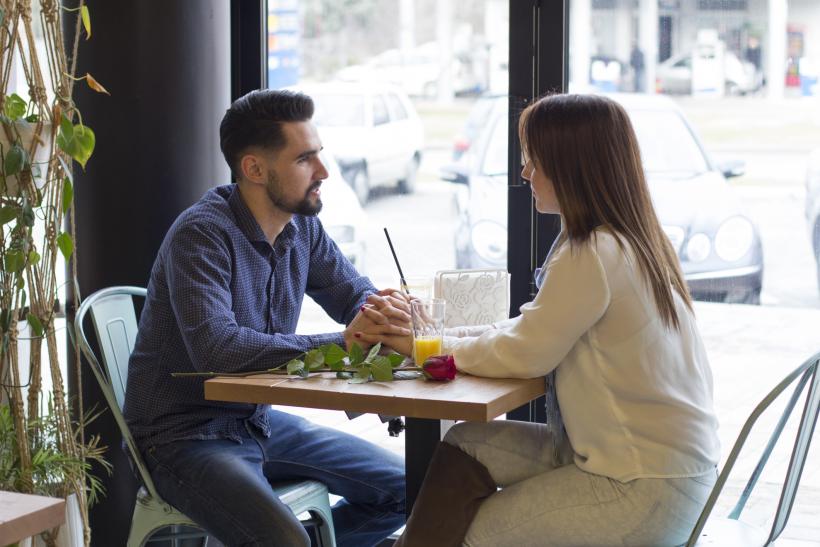
If you do decide to tell your partner that you want to see a therapist, you might feel more comfortable if you have back up plan.
One of the hardest things to admit to myself in 2017, and then admit to my loved ones right after, was that I wanted to see a therapist.
I made it 29 years without ever sinking my butt into one of their couches and admitting my deepest and darkest secrets, problems, and unresolved questions. For a while, I felt like I could go on another 29-year streak.
But then I began suffering months of depression, anxiety of all sorts, and an overall sense of sadness that I just couldn't kick.
It took months of being unhappy with myself and my situation, rolling my eyes at others when they suggested I get help, before waking up and deciding to see a therapist.
I was most nervous about telling my boyfriend, who for a good year or so acted like my unofficial therapist. However, this caused our relationship to rock and roll down a path toward destruction. I wanted to tell him that I decided to see a therapist and that perhaps it wouldn't be a bad idea for us to see one together too.
In trying to figure out how to utter that news to the person I loved the most, I consulted professionals, who gave me these four pieces of advice.
1. Explain What You're Hoping To Get From It.
Going to therapy was a brand new thing for me. Having to explain why I wanted to seek help from a professional to a person who had also never seen a therapist before felt tricky.
Dr. Angela Johnson, a Licensed Psychologist, suggests explaining to the other person how you or they will benefit from the therapy.
"If you want to see a therapist you can tell your partner how having an outlet to talk about your feelings will mean you will be less anxious, stressed, or depressed at home," says Johnson. "Similarly when trying to get a partner to agree to couples counseling, one partner could say, 'I know we sometimes argue about (money, sex, communication, etc.) and I don’t want to just complain about them or blame you for them...I think having someone neutral to help us both feel like our feelings and opinions matter and they could help us find solutions.' People are more agreeable to working with a counselor when there are tangible benefits for themselves or their relationship."
2. Keep It A Secret.
While it might be at the very top of your to-do list to confide in your partner about going to therapy, it's not necessarily something you have to do.
You Might Also Like: It’s Time To Redefine What We Call A “Successful Relationship"
Nikita Banks, an LCSW, agrees that you can keep this decision to yourself, at first.
"Until you have decided how supportive someone is going to be with that information I say keep it to yourself," says Banks. "My relationship with my therapist is personal; it's intimate, and it is not up for discussion. As a therapist, it's obvious that my partner understands I advocate that people go to therapy."
3. Share Different Articles.
If you do decide to share the news with your partner, you might feel more comfortable if you have back up. That back up might be in the form of news articles that you can share.
Rachel Kazez, an LCSW, says that you should use the news.
"Share articles (like this one) about mental health so that mental health and therapy are in your conversations, and not only when something's wrong, or you want to get outside help," says Kazez.
4. Encourage Your Partner To Visit.
If you're looking to go to therapy alone at first but then perhaps want your partner to join, you can let them know that is your intention.
Justin Lio, a psychotherapist, says it's okay to be in your therapy and then encourage your partner to swing by and see what it's like.
"This way he can see that it may not match up with how the media has portrayed therapy," says Lio.








